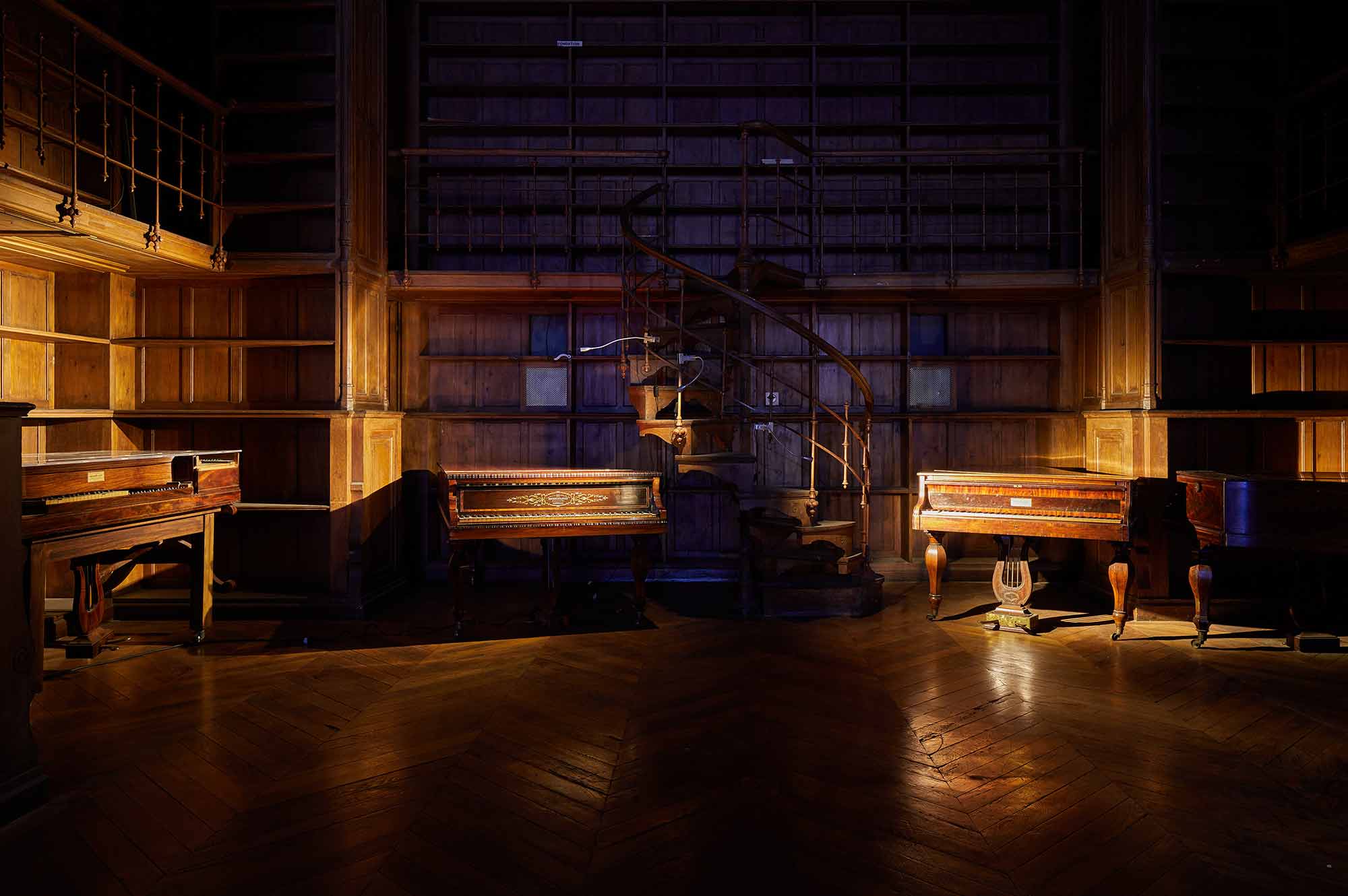The School: The Sonorous, The Audible and The Silenced unfolds in one of the aisles of the Conservatoire. This area of the building is usually not open to the general public and is less frequented by the school’s students, yet it reminds us of the institution’s previous lives. The rehearsal hall with crumbling frescoes by the Marseille artist Dominique-Antoine Magaud has seen many rehearsals including some of Roland Petit, the choreographer, dancer and founder of the Ballet National de Marseille. The library halls that used to house different collections, now stay alike the empty musical score lines and listen carefully to the students practicing and the city life outside of its walls.
As you wander through the Conservatoire, you might notice a collection of pianos. The famous piano makers Maison Boisselot et Fils, founded in 1831 became one of the largest piano factory in France in the 1840s. Jean-Louis Boisselot set up a counter at Quai du port in Marseille where he sold scores, mandolins, violins, flutes and pianofortes. Business being flourishing, he opened a workshop and a shop in rue Saint Ferréol, followed by the vast factory on Place Notre-Dame du Mont. Following a series of deaths in the family and an economic crisis, Boisselot et Fils went bankrupt and its production was taken over by another brand and another company.
The Association Boisselot & Fils, founded by Attilio Scotto, Jean-Charles Monleau and Marie-Brigitte Duvernoy, has been working for more than twenty-five years to collect and preserve the Boisselot family’s instrumental and musical heritage. Today, housed at the Conservatoire de musique de Marseille, the collection comprises twenty pianos, including grand, upright and square pianos, each bearing witness to a particular period in piano making









 Pianos Boisselot et Fils. Photo ©Jeanchristophe Lett /Manifesta 13 Marseille
Pianos Boisselot et Fils. Photo ©Jeanchristophe Lett /Manifesta 13 Marseille